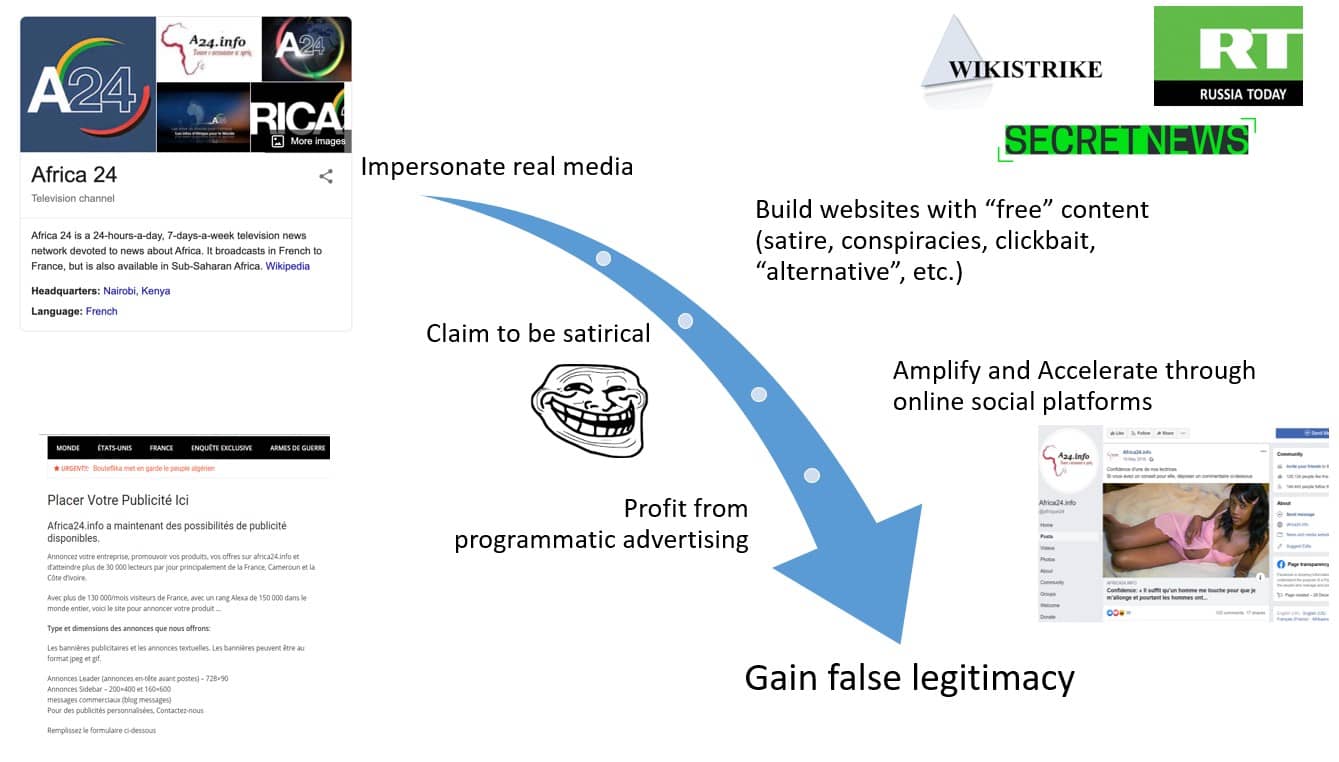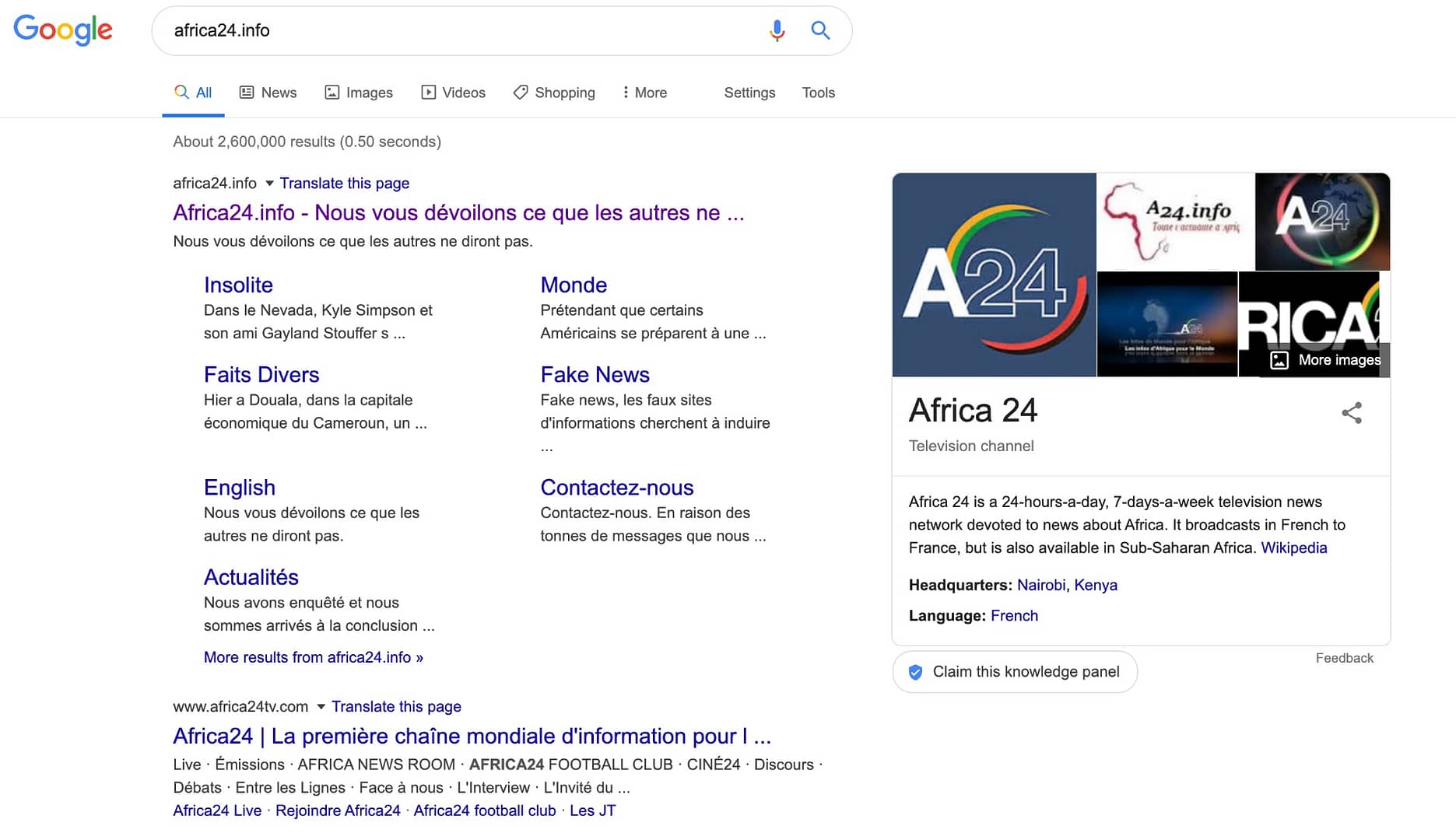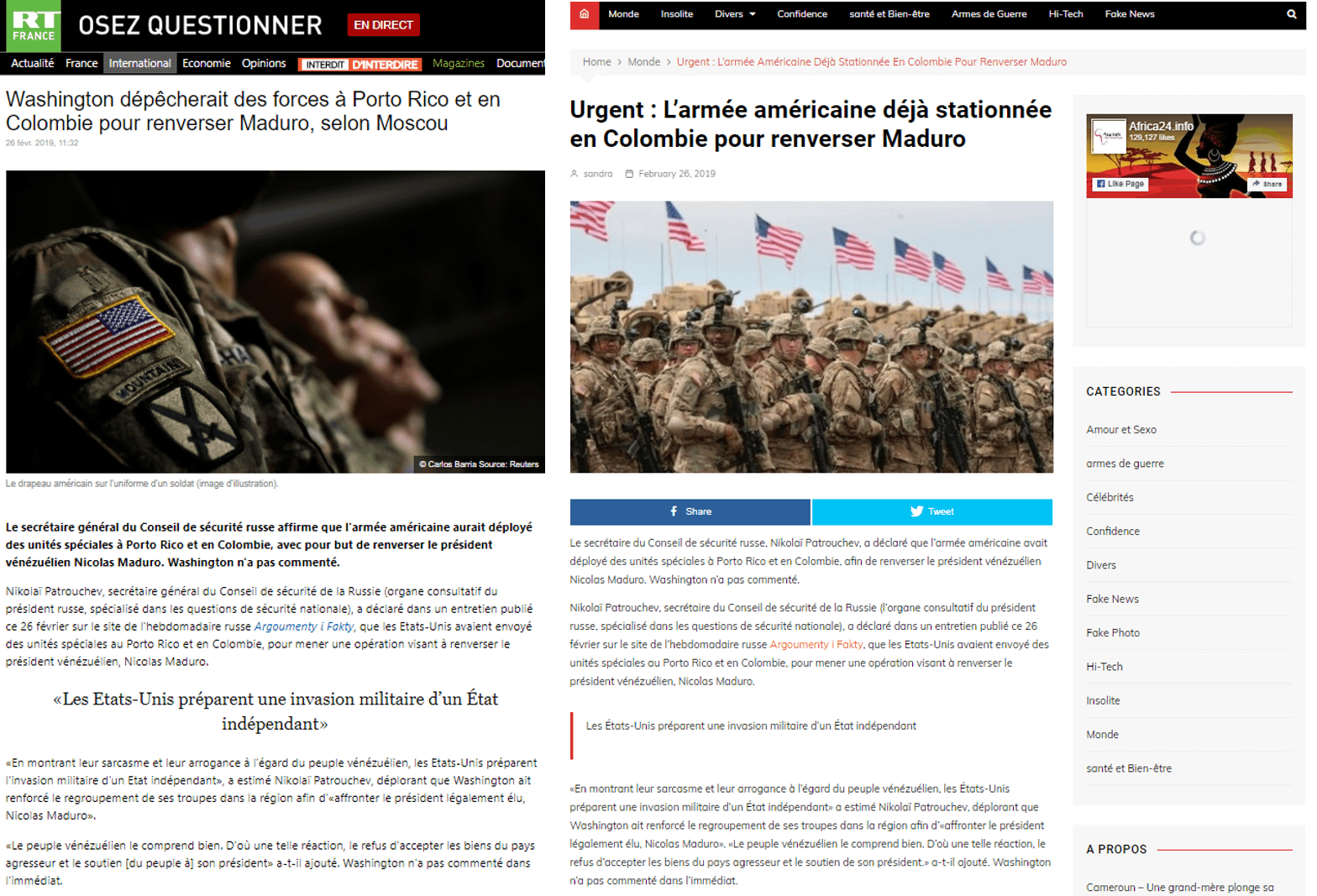By Antoine Grégoire
In autumn 2019, we began to look into two disinformation websites, Africa24.info and 24jours.com, which were regularly flagged by some fact-checkers as outlets that spread disinformation.
These websites appear to use increasingly common disinformation techniques, such as:
- Playing on the edge of satire to bypass disinformation counter-measures;
- Spoofing names of legitimate media to mislead people;
- Syndicating content from Russia Today, Sputnik and other controversial sources, and
- Using Facebook for amplification.
By looking deeper, we discovered it was, in fact, a scam network oriented toward monetisation. This network has included a dozen of websites, ranging from health scams selling home remedy books to “sexo” clickbait. During the past few years, the network of websites and Facebook pages have progressively shifted towards republishing Russia Today, Sputnik, and other alternative news content. This shift, together with the fact that the network is primarily money-oriented, indicates that republishing RT and Sputnik content as well as other controversial sources, such as conspiracy websites, can be used for monetisation purposes.

These websites were fact-checked multiple times by fact-checkers for disinformation stories concerning Africa, such as “France giving weapons to Boko Haram”, or “France threatening to use nuclear weapons against African countries for leaving CFA Franc”.
Different French factcheckers had encountered difficulty in categorising the disinformation spread by Africa24.info and 24jours.com. This was due to the fact that the two websites changed their terms and conditions. By the time most of the fact-checkers’ articles were released, the terms and conditions pages from Africa24.info and 24jours.com stated that their content was satirical and unverified, leading fact-checkers to classify them as satirical websites. Later, both websites removed all the mentions of satirical intent.

Using names close to mainstream media has been a method for the network to attract greater audiences on their websites. Africa24.info sounds a lot like Africa24TV.com – a legitimate pan-African media. 5monde.com, which is another website we connected to the same individuals, uses the same tactic by spoofing TV5monde.com – a French media outlet extremely active in French-speaking Africa.
By looking further into these two websites and the content they share, we discovered they syndicate content and/or copy-paste content from Sputnik, Russia Today, and other controversial sources (Press TV, French conspiracy websites…). They even translate articles from foreign alternative media. We identified, for example, an article containing anti-vaccination disinformation, which was translated and copy-pasted from the British alternative website Neon Nettle.

In addition, this content was also shared on Facebook and the platform is used for amplification. The same profile behind Africa24.info and 24jours.com runs a wide network of Facebook pages, which are not all dedicated to content from controversial media and instead include unreliable health advice. In this context, Facebook’s network structure is favourable to the use of clickbait.
By investigating the domains, the IP addresses, and the servers, we found there were other older websites operated by the same individual(s). These older websites operated as elaborate scams to make money by taking advantage of the click economy.
We determined there were three phases in the kind of content shared by the network:
- 2014–2015: The network sold fake books on ending depression and home remedies.
- 2015–2017: The network created websites oriented towards “sexo” clickbait.
- 2017-present: The network has progressively shifted towards syndicated and copy-pasting content from RT, Sputnik, and conspiratorial websites.
Under this new light, sharing conspiratorial mis—and disinformation does not seem to have a political goal. Rather, it’s a scam, achieved by hijacking information to make money via clicks and traffic. It is, therefore, interesting for understanding the disinformation phenomenon. This case shows that disinformation is financially viable and is not necessarily tied to political or foreign interference.
You can find more information by reading France24’s coverage (in French) with whom we collaborated for this investigation.


